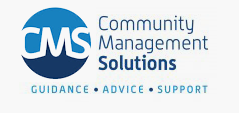
Are you making these 9 Recruitment Mistakes?
Recruitment is one of the most underappreciated activities within Human Resources and probably the most misunderstood. It is very easy to make mistakes during the recruitment process however being aware of common recruitment mistakes can always assist you in obtaining the best result.
1. Not understanding the position
You need to ensure that you have clarity about the role that you are recruiting for, determine what the key responsibilities and inherent requirements of the role are, and ensure you have a fully developed and relevant position description that accurately reflects the actual tasks expected of the person. Look at the current and future needs of the business in the form of a workplace planning exercise. Always review the role as it stands at this point of time and what is required from the role in the future, please do not depend on outdated position descriptions as more than likely the role will have substantially changed over the passage of time. The job description should reflect the job advertisement and there must be consistency and not to be so detailed that there is confusion from both sides as to the actual requirements of the role. Be honest with potential candidates about the role, and what the tasks actually look like on a daily basis and communicate this to the candidate.
2. Expecting a smooth recruitment process
A Recruitment process can certainly be structured with the preparation of documentation and clear definitive guidelines on timing and deliverables however the recruitment process must have some flexibility built into the process. This allows the unexpected to be managed appropriately as candidates cannot always fall into a particular process due to unavailability or other issues which may derail the process. Always be flexible in approach and utilise a number of recruitment methodologies to attract the most appropriate candidate. Collaboration of all inter-view panel members is crucial to ensure that the process is as smooth as possible so that there is no misunderstanding of due process.
3. Failing to keep candidates informed and poor communication
Interviewing for a role is a two-way process. The candidate is also evaluating if this is an organisation that I would like to work for. The initial impression starts from the very first point of contact regardless of which medium is used for the initial inquiry. Treating people with respect and courtesy throughout each stage of the process is crucial in ensuring that all candidates enjoy a pleasant and professional engagement with the potential employer. Communication is the key to keeping candidates aware of the process and timelines and what the actual interview process looks like so that a candidate can be as best prepared as possible to attempt to present in the best light possible. An unsuccessful candidate should still feel that they were treated with empathy and courtesy throughout the process, as if they are not, they will be reluctant to go through the same process again with the organisation.
4. Rejecting Overqualified Candidates
People change roles and positions for a number of reasons other than simply career progression, some people are seeking a simpler lifestyle looking for more work-life balance, or other reasons that are legitimately associated with a new career choice. Do not reject an overqualified candidate within reason due to a bias such as you may believe they will become bored with the role or not stay long. Both may be legitimate risks, but the person may also bring new experiences and talents to the organisation.
5. Waiting for the ideal Candidate
You may have the ideal candidate in mind, the perfect person for the role that you envisage, or you may have a high-performing person in a similar position, and you are looking to replicate that person. A perfect candidate who ticks all the boxes may be rare and impossible to find so you must have some measure of compromise within the process and within your expectations. Concentrate on the inherent requirements of the role from a skills, qualifications, and experience perspective and also pay particular attention to cultural fit, other skills can be trained once the candidate is in place.
6. Asking the wrong and or inappropriate interview questions.
Be very careful that you do not ask inappropriate or discriminatory questions that may be well intended but think carefully as to how that particular question would be received by the candidate. You only get the opportunity to ask a certain number of questions, any wasted or irrelevant questions may affect your judgment on the suitability of a particular candidate. Ensure that there is somewhat of a consistency in questions for each candidate to ensure a balanced scorecard approach.
Ask yourself if the questions enable you to judge if the candidate can do the inherent requirement of the role and be careful of similar or repeat type questions which more than likely the candidate has already answered in a previous question.
Too many times Interview panelists may say to a candidate “You have probably already answered this one” so have replacement and or alternative questions available if this occurs.
Never underestimate the importance of Behavioural Interview Techniques in your process.
7. Remuneration is not the only factor
Remuneration is extremely important for a candidate to properly consider for the role on offer. Ensure that the salary on offer is fair and reasonable based on the requirements, qualifications, skills, and experience required for the role. However, it is not the only thing that is important. Training and Development Opportunities, Mentoring, Future Career Opportunities, Organisational Culture, working from home, family-friendly workplace practices, and potential for Career development may just be as important to some candidates as the remuneration on offer so don’t dismiss these other factors when discussing the benefits of the role.
8. Expecting an Instant Success
It takes time for a person to become familiar with your organisation and with the role itself regardless of previous experience and expertise. A new start can take up to three months to become fully productive in a new role so we must have patience with our new candidates to allow them to become fully integrated into your organisation. Providing proper internal training and a thorough induction process is just as important as the interview procedure itself. A new candidate can be nervous and apprehensive about their new role so take the time to provide guidance and direction preferably in the form of an employee mentoring program. Ensure they are properly welcomed to the team and supported in their endeavors. Open communication, regular contact, and catch-up meetings are vital in the initial employment stages.
9. Speed in the recruitment process
Hiring quickly can be very detrimental. Think of long-term benefits and goals rather than a quick fix. Sometimes the pressure of operations requires us to recruit quickly to fill an urgent need however consider an interim tempo-rary solution whilst taking the time to select an appropriate permanent candidate. Balance must be sought in the recruitment process to ensure that you obtain the right candidate.



